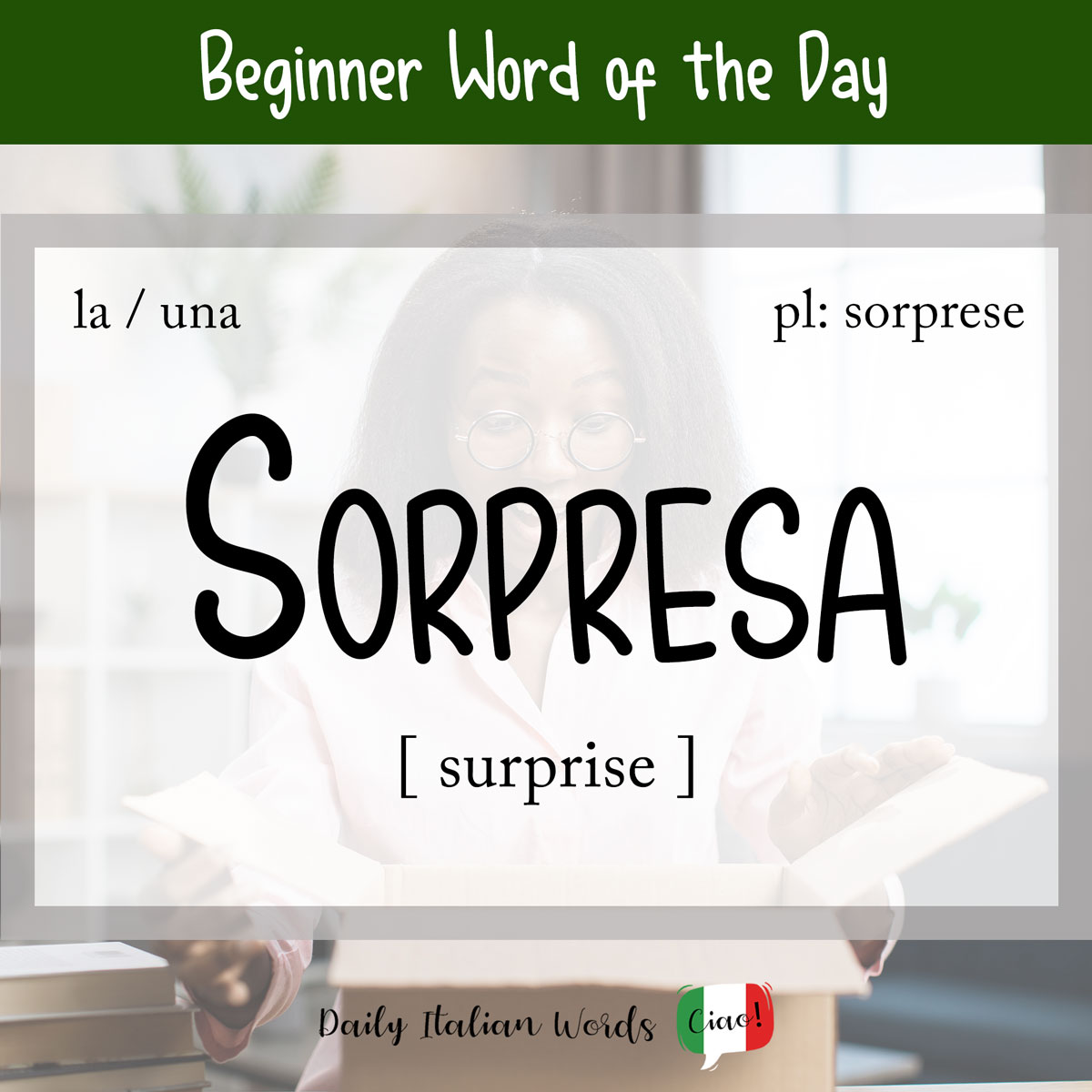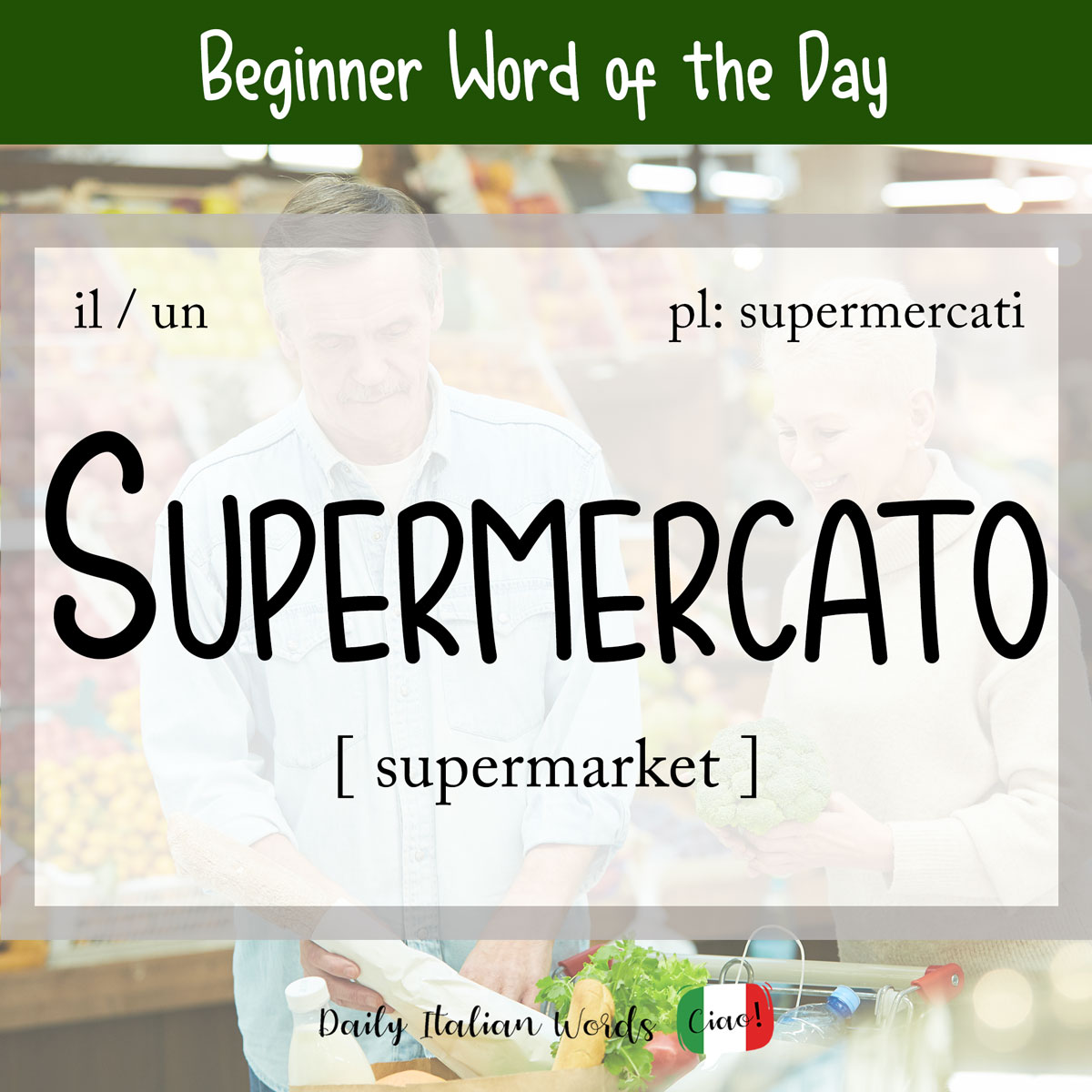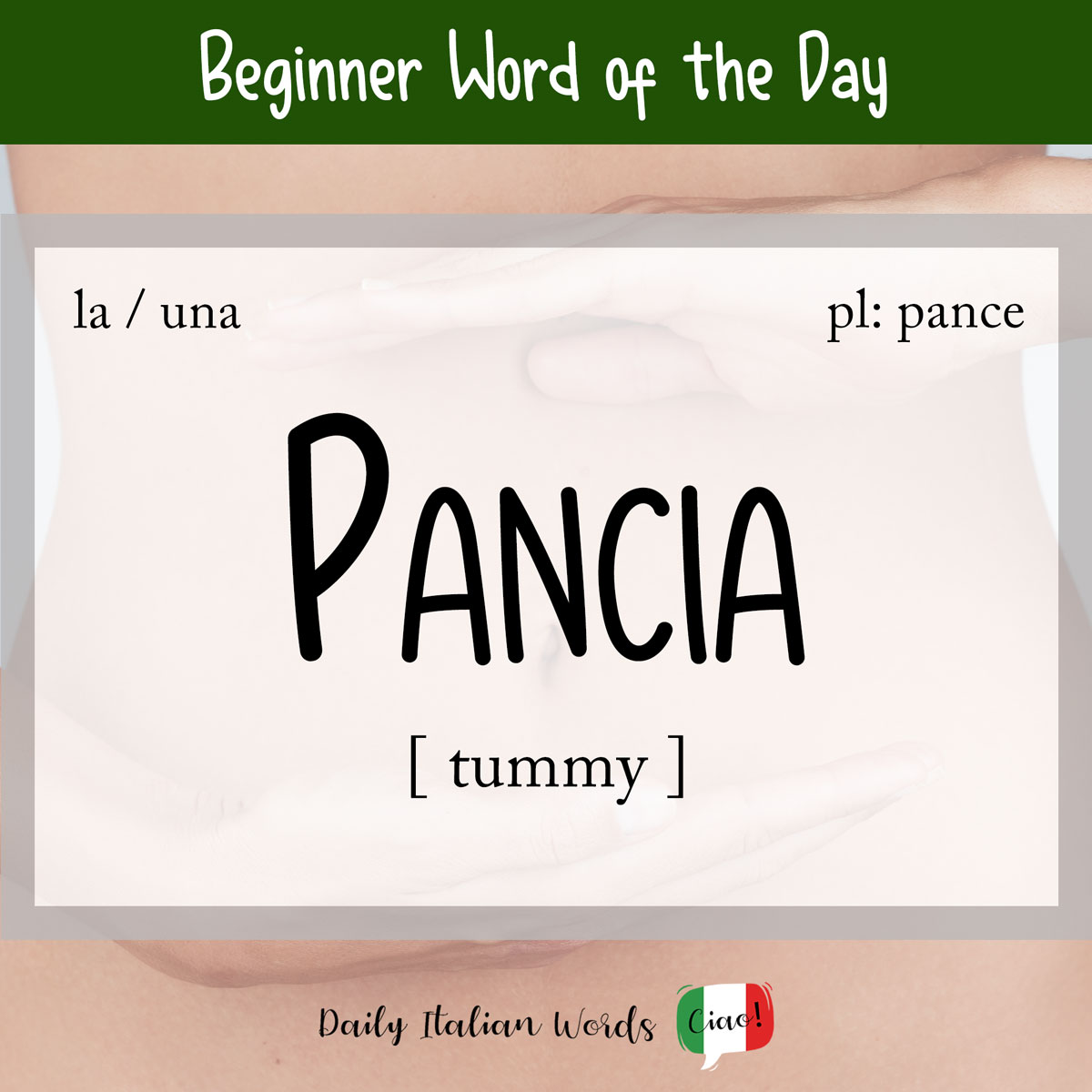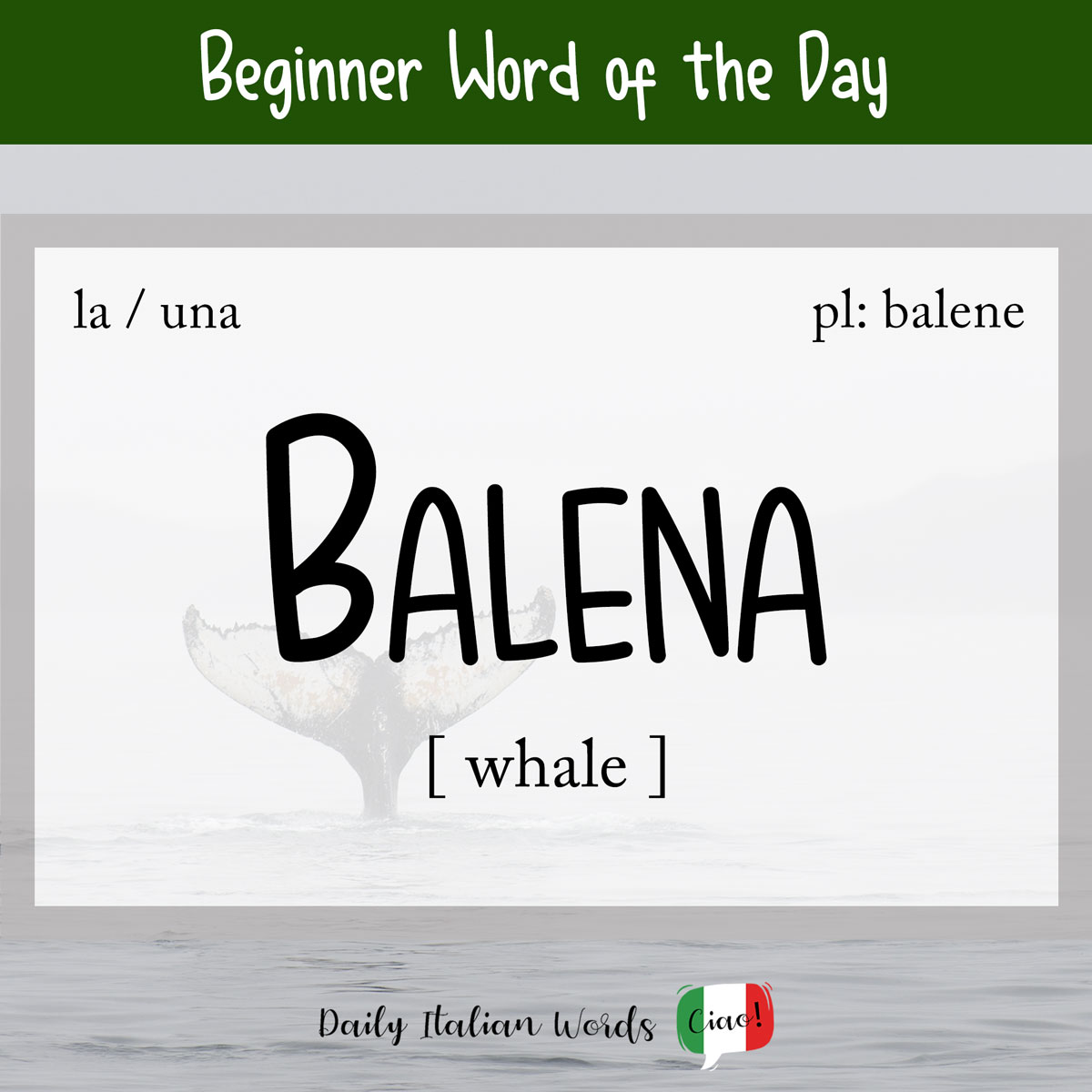Italian Word of the Day: Sorpresa (surprise)
The Italian word for surprise is sorpresa (feminine, plural: sorprese), which is the past participle of the verb sorprendere (to surprise). Both the English and Italian terms can trace their origin back to the medieval Latin verb superprehendere (to seize). Surprises can be broadly divided into two categories: belle sorprese (nice surprises) and brutte sorprese …






